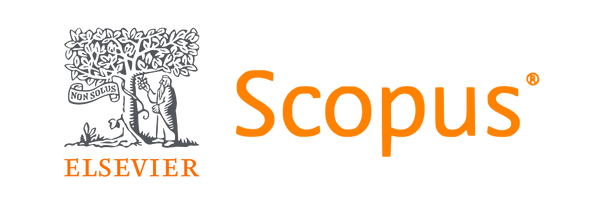TALAQQI RUKBAN AND IHTIKAR IN THE TRADITIONAL MARKET AT MAKASSAR IN PERSPECTIVE OF ISLAMIC ECONOMIC LAWS
Abstract
This article discusses talaqqi rukban, a buying and selling tactic that seen as violating Islamic Economic Law. Where this practice is detrimental to sellers who sell their agricultural products because they are hindered by unscrupulous buyers who offer the prices of such farm products at prices far below the actual market price. This trading system, of course, is a fraud because the seller of agricultural products does not know the actual price and suffers from it. There are also sellers in the market monopolize certain goods in the market so that the costs of these goods rise dramatically. Sellers who carry out the monopoly get big profits while the people who become consumers are disadvantaged. This practice in Islam is called Ihtikar. This research uses descriptive qualitative research methods with a normative sociologies approach. In Islamic Economic Law, this practice strictly prohibited. It is a prohibited sale and purchase, but in Makassar, the practice of Talaqqi Rukban and Ihtikar still often occurs, whereas when viewed from the background of the Talaqqi Rukban and Ihtikar perpetrators are religious people. Of course, the practice is following Islamic Economic Law based on the Qur'an and Hadith. This research will propose a system, form, and analysis of some views of Jumhur scholars about the law, the terms of sale and purchase, which are: forbidden, obligatory, Sunnah, and makruh following Islamic economic law.
Keywords
Full Text:
PDFReferences
Al-Qaradhawi, Y., & Daud, M. H. bin. (2016). Halal dan Haram dalam Islam. Publishing House Sdn. Bhd.
Apriliawati, D. (2017). Perspektif al-Madhahib al-Arba’ah terhadap jual beli biji Genitri di Desa Soso Kecamatan Gandusari Kabupaten Blitar. Surabaya: UIN Sunan Ampel Surabaya.
Asyari. (2003). Kamus Istilah Ekonomi Syari’ah. Al-Ma’arif.
Basyir, A. A. (2014). Asas-asas Hukum Muamalah. Yogyakarta: UII Press.
Darussalam, A. (2019). Paradigma Bisnis Islam Perspektif Hadis. Tahdis: Jurnal Kajian Ilmu Al-Hadis, 6(1).
Daymon, C., & Holloway, I. (2008). Metode-metode riset kualitatif dalam public relations dan marketing communications. Bentang Pustaka.
Fauzan, S. A. (2006). Fikhi Sehari-Hari. Gema Insani.
Ginting, E. D. (2016). Monopoli dalam Islam. Jurnal Ilmiah Penegakan Hukum, 3(1), 50–59.
Hakim, L. (2016). Ihtikar Dan Permasalahannya Dalam Perspektif Hukum Islam. Jurnal Darussalam: Jurnal Pendidikan, Komunikasi Dan Pemikiran Hukum Islam, 7(2), 320–330.
Himawan, A. (2011). Tinjauan Ekonomi Islam terhadap Transaksi Finansial di Pasar Modal Indonesia. Jakarta: UIN Syarif Hidayatullah.
Isnawati, L. (2019). Jual Beli Online Sesuai Syariah. Lentera Islam.
Isro, M. (2017). Makelar Mobil dalam Perspektif Hukum Islam (Studi di Showroom Sultan Haji Motor Kelurahan Sepang Jaya Kecamatan Kedaton Bandar Lampung). Lampung: UIN Raden Intan Lampung.
Kamal, M., & Dkk. (2002). Fikih Islam Sesuai Dengan Putusan Majelis Tarjih. In Citra Karsa Mandiri, Yogyakarta. Yogyakarta: Citra Kersa Mandiri.
Kumalasari, A., & Na’imah, E. (2017). Hadis tentang Larangan Menjual Barang Yang Tidak Dimiliki (Kajian Hadis Tematik). Surakarta: IAIN Surakarta.
Machmudah, M. (2009). Perspektif Hukum Islam dan UU No. 8 Tahun 1999 tentang Perlindungan Konsumen terhadap Jual Beli Udang Windu Gelonggong di Kelurahan Kalianyar Kecamatan Bangil Kabupaten Pasuruan. UIN Sunan Ampel Surabaya.
Mankiw, N. G. (2013). Macroeconimics (8 ed.). New York USA: Charles Linsmeier.
Marukum, S. B. B. (2012). Pemikiran Yusuf Al-Qardhawi tentang Ihtikar (Dalam Kitab Halal Haram Fil Islam). Riau: UIN Sultan Syarif Kasim Riau.
Mentari, S. (2015). Fenomena Talaqqi Rukban dalam Jual Beli di Desa Jambo Labu Kecamatan Birem Bayeun Kabupaten Aceh Timur. Langsa: IAIN Langsa.
Muhammad, N. S. (1996). Kegiatan Ekonomi dalam Islam. In Alih bahasa Anas Sidiq Jakarta: Bumi Aksara. Bumi Aksara.
Mujiatun, S. (2014). Jual Beli dalam Perspektif Islam: Salam dan Istisna’. JRAB: Jurnal Riset Akuntansi & Bisnis, 13(2).
Muslim, M. B. (2010). Ihtikâr dan Dampaknya Terhadap Dunia Ekonomi. Jurnal Studi Al-Qur’an, 6(1), 1–14.
Nahdliyah, L. (2010). Analisis Hukum Islam terhadap Transaksi Nyegget Degheng yang Berpengaruh pada Equilibrium Price (keseimbangan harga) di Pasar Ikan kec. Ketapang kab. Sampang. UIN Sunan Ampel Surabaya.
Praja, J. S. (1995). Filsafat Hukum Islam. Bandung: LPPM Universitas Bandung.
Putri, D. (2019). Dampak Ihtikar Terhadap Mekanisme Pasar dalam Perspektif Islam. Imara: JURNAL RISET EKONOMI ISLAM, 3(2), 183–191.
Qardawi, Y. (1997). Norma dan etika Ekonomi Islam. Gema Insani.
Sabiq, S. (2004). Fiqh Sunnah Pengantar Imam Hasan Al-Banna, Jilid 3. Jakarta: Darul Fath.
Thalib, M. (1999). Bimbingan Bisnis dan Pemasaran Islami. Gema Risalah Press.
Ulfah, A. F. (2010). Kriteria komoditas Barang Dagangan yang Dilarang di Ihtikar Menurut Imam Al-Ghazali. Riau: UIN Sultan Syarif Kasim Riau.
Usman, M. (2002). Kaidah-Kaidah Ushuliyah & Fiqhiyah. Jakarta: RajaGrafindo Persada.
Wahyuni, A. (2010). Penimbunan barang dalam perspektif hukum Islam. Al-Iqtishad: Jurnal Ilmu Ekonomi Syariah, 2(2).
DOI: http://dx.doi.org/10.30984/jis.v18i1.1074
Article Metrics
Abstract view : 3639 timesPDF - 1572 times
Refbacks
- There are currently no refbacks.
Copyright (c) 2020 Jurnal Ilmiah Al-Syir'ah

This work is licensed under a Creative Commons Attribution-NonCommercial-ShareAlike 4.0 International License.
Rumah Jurnal IAIN Manado
Jl. Dr. S.H. Sarundajang, Kawasan Ringroad I, Malendeng Manado Kode Pos 95128, Sulawesi Utara, Indonesia.

All publication by Jurnal Ilmiah Al-Syir'ah are licensed under a Creative Commons Attribution 4.0 International licence.
Jurnal Ilmiah Al-Syir’ah, ISSN 1693-4202 (Print), ISSN 2528-0368 (Online)






